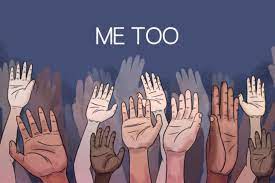Shanghai Cooperation welcomes Iran to the group and declares that the bloc is not hostile to other nations
On Tuesday, leaders of the Shanghai collaboration Organization (SCO) sought to strengthen connections and increase collaboration within the developing Eurasian bloc, but they emphasized that the organization is not hostile to any other nations.
A joint statement issued by the leaders at the conclusion of an online summit organized by India said that members of the SCO reject bloc, ideological, and combative methods to solving issues and addressing security threats.
The leaders expressed concern over the “unilateral and unlimited expansion of global missile defence systems by certain countries or groups of countries” without specifically mentioning NATO’s enlargement or Western military support for Ukraine.
The leaders expressed their worry for the situation in Afghanistan and said that they believe it is crucial to create an inclusive government there that includes members of all ethnic, religious, and political factions in Afghan society.
All countries, with the exception of India, backed China’s expansive Belt and Road Initiative (BRI) plan, which calls for massive infrastructure investment to restore the historic Silk Road and link China with Asia, Europe, and beyond.
India, Pakistan, Kazakhstan, the Kyrgyz Republic, Tajikistan, and Uzbekistan are members of the SCO, a Eurasian security and political alliance established in 2001 by Beijing and Moscow.
Tuesday saw Iran become the organization’s ninth member, and President Ebrahim Raisi attended the ceremony.
By signing a memorandum of understanding that would result in membership in 2024, Belarus added weight to the bloc’s efforts to expand its power and fend against Western influence in the area, a stance that was more overtly expressed by China and Russia in their own statements.
PUTIN’S CONFIDENCE
Vladimir Putin, the president of Russia, appeared at the virtual summit for the first time since a brief mutiny last month, assuring SCO leaders of Russia’s stability and unity.
Putin issued a warning that the likelihood of war and the threat of a world economic collapse were both rising. He said that Moscow intended to strengthen relations with the SCO.
He assured the gathering that Russia will resist any pressure from the West and any sanctions or “provocations” related to what Moscow refers to as its “special military operation” in Ukraine.
Russia sees nations like China, India, and Iran as crucial allies in opposing the United States and thwarting what it sees as American efforts to impose its will on the globe.
The two nations referred to themselves as “among the closest partners in the world” at the summit, which was held only two weeks after Modi was welcomed by U.S. President Joe Biden during a state visit.
A DIPLEX TIGHTROPE
China’s President Xi Jinping urged for improved communication, shared security, and more unity and trust in his online speech.
“We should autonomously choose our foreign policy while keeping in mind the long-term and overall interests of our area. We must watch out for outside efforts to incite a new Cold War or a camp-based conflict in our area, said Xi.
Both Xi and Putin advocated for a system change that would allow for the settlement of international commerce in local currencies in order to avoid the use of the dollar, particularly in the wake of the sanctions imposed after Russia’s conflict in Ukraine.
With ties between Western countries and a Russia-China cooperation tense after Moscow’s invasion of Ukraine last year and Beijing’s rising aggressive position in global geopolitics, India, which this year holds the SCO and G20 chair, has walked a diplomatic tightrope.
Since a military conflict on their Himalayan border in 2020, India’s relations with China have taken a severe hit.
Prior to the summit’s start, Modi asked the SCO’s members to work together to combat terrorism and address issues including the scarcity of food, gasoline, and fertilizer.
Following the mercenary uprising, Modi called Putin last week. Modi called for communication and diplomacy throughout the conversation in regards to the conflict in Ukraine.
The closest India has gone to explicitly addressing the matter with Putin was when Modi informed Putin last year that it was not a time for war on the margins of the SCO meeting in Uzbekistan.
In September, when India will be hosting the G20 conference, Putin and Xi are both anticipated to go to New Delhi. Biden and the leaders of other G20 members are also anticipated to attend.
India, which has angered the West, has refused to attribute the conflict to Russia and strengthened bilateral commerce, notably by increasing its imports of Russian oil to record levels.







